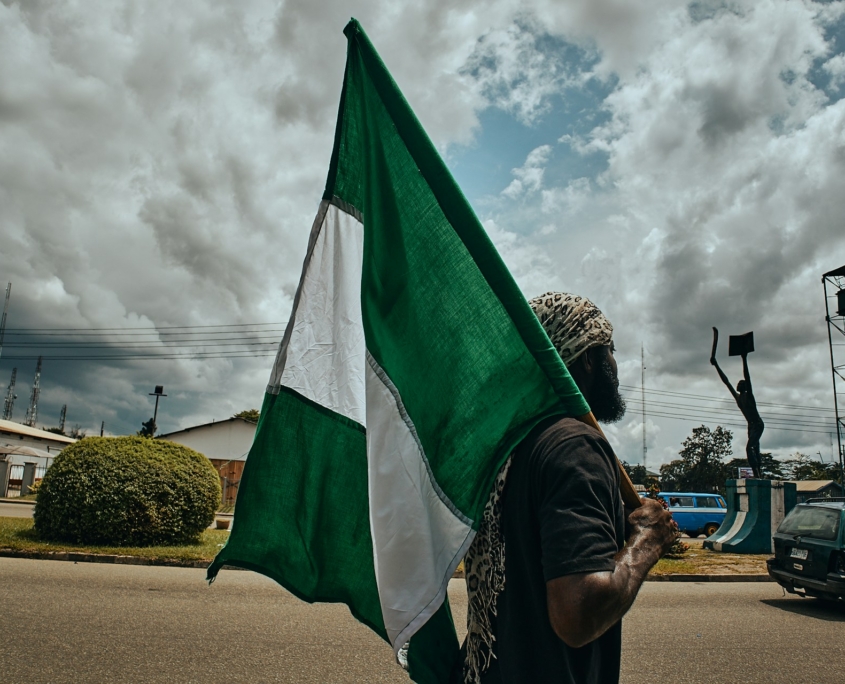Urban Poverty in Nigeria: Addressing the Plight of the Poor
 The Federal Republic of Nigeria, located in West Africa between the Sahel and the Gulf of Guinea, is a multi-ethnic and culturally diverse federation with 36 autonomous states and the Federal Capital Territory. Despite the government’s goal to eliminate urban and rural poverty in Nigeria by 2030, rapid urbanization presents significant challenges. While urban centers often drive socio-economic development, many large cities in the country lack the necessary infrastructure and social services, exacerbating poverty among those who migrate to these areas.
The Federal Republic of Nigeria, located in West Africa between the Sahel and the Gulf of Guinea, is a multi-ethnic and culturally diverse federation with 36 autonomous states and the Federal Capital Territory. Despite the government’s goal to eliminate urban and rural poverty in Nigeria by 2030, rapid urbanization presents significant challenges. While urban centers often drive socio-economic development, many large cities in the country lack the necessary infrastructure and social services, exacerbating poverty among those who migrate to these areas.
Drivers of Urbanization and Its Impact
Several interrelated dynamics are driving large-scale and extensive urbanization in Nigeria. Unlike many Sub-Saharan African countries, Nigeria has undergone urbanization since pre-colonial times. This early urbanization, combined with erratic colonial development focused on mining and petrochemical projects, has created complex urban subsystems. These systems continue to hinder economic development and worsen poverty.
Demographic Pressures and Migration
Currently, the World Bank estimates that 53% of Nigeria’s 213 million people reside in urban areas, a figure expected to rise to 70% by 2050. Declining mortality rates and persistently high fertility rates are the primary drivers of this rapid urbanization, supplemented by rural-urban migration contributing to urban growth. Nigeria’s increasing population places demographic pressure on rural natural resources, prompting many to move to cities in search of higher incomes and new economic opportunities.
Environmental Challenges and Conflict-Driven Migration
Human-induced deforestation and climate change are significantly affecting agricultural productivity in rural areas, which has traditionally been the main economic activity for low-income and peasant farmers. Additionally, conflict and insurgency from recognized terrorist organizations such as Boko Haram and the Islamic State’s West African Province, particularly in northeast Nigeria, are forcing residents to relocate to urban areas, thereby contributing to urban population growth.
Urban Growth and Its Challenges
While most analysts focus on Lagos, Nigeria’s most populous city with an estimated 18 to 20 million residents, other cities like Ibadan, Kano and Abuja are also experiencing rapid population growth. Urbanization can stimulate local economic growth but also strain social services and infrastructure, particularly impacting the poor. The country’s reliance on oil and gas revenues makes its economy vulnerable to global price fluctuations and corruption, which hampers its ability to develop other revenue streams, enhance governance and invest in robust urban infrastructure and public services for the poor.
Poor urban planning policies, along with other factors, have led to increasing rates of urban poverty in Nigeria. The national multidimensional poverty rate stands at about 63%, with roughly 42% of urban residents living in poverty. These individuals face disproportionate challenges such as social exclusion, gender inequality, underemployment and limited access to education, housing and health services. They often live in urban slums, making them vulnerable to diseases, crime, environmental hazards and insecurities related to food, water and energy.
Government Initiatives and Collaborations
To address urban poverty in Nigeria, the national government has implemented numerous projects in conjunction with local grassroots organizations and international development institutions. While many previous projects failed to produce their intended results, recent initiatives appear more promising.
In 2016, the Government of Nigeria implemented the National Social Safety Net Project (NSIP), which was complimented by a civil society-led implementation effort that is now known as the Enhancing Social Protection Policies in Nigeria Project (ESPPIN).
The NSIP was created to help low-income and vulnerable individuals in Nigeria gain access to financial transfers and basic services through an expanded social safety net in urban areas. This initiative led to the creation of a National Social Registry and has supported more than 3.2 million beneficiaries across the country, 49% of whom are women. Additionally, in partnership with the World Bank and various civil society organizations, the Government of Nigeria launched the Community and Social Development Project to provide impoverished and internally displaced people with improved infrastructure and basic services such as health care, food, water and housing in urban settings.
The Role of NGOs in Alleviating Urban Poverty
Nongovernmental organizations (NGOs) and civil-society networks also serve as crucial agents of change in cities throughout Nigeria because they often operate relatively independently of bureaucratic constraints, enabling them to respond to the multifaceted needs of impoverished urban communities.
Global organizations such as Cities Alliance, the Justice and Empowerment Initiative and Slum Dwellers International have contributed to mitigating urban poverty in Nigeria. They have achieved this by profiling urban slums, preventing evictions, fostering partnerships for knowledge sharing and providing essential services like clean water, food, housing and health care. Similarly, local entities like the Ambience of Hope Exceptional Foundation and the AMAC Council play key roles in alleviating urban poverty. They use their local insights and establish inclusive networks to effectively meet the changing needs of the urban poor.
Looking Ahead
Nigeria’s multifaceted approach to urban poverty alleviation—incorporating government action, NGO support and international collaboration—promises significant progress. The ongoing initiatives lay a strong foundation for sustainable urban development and enhanced quality of life for its urban poor.
– Campbell Clarke
Campbell is based in New York City, NY, USA and focuses on Technology and Solutions for The Borgen Project.
Photo: Unsplash
